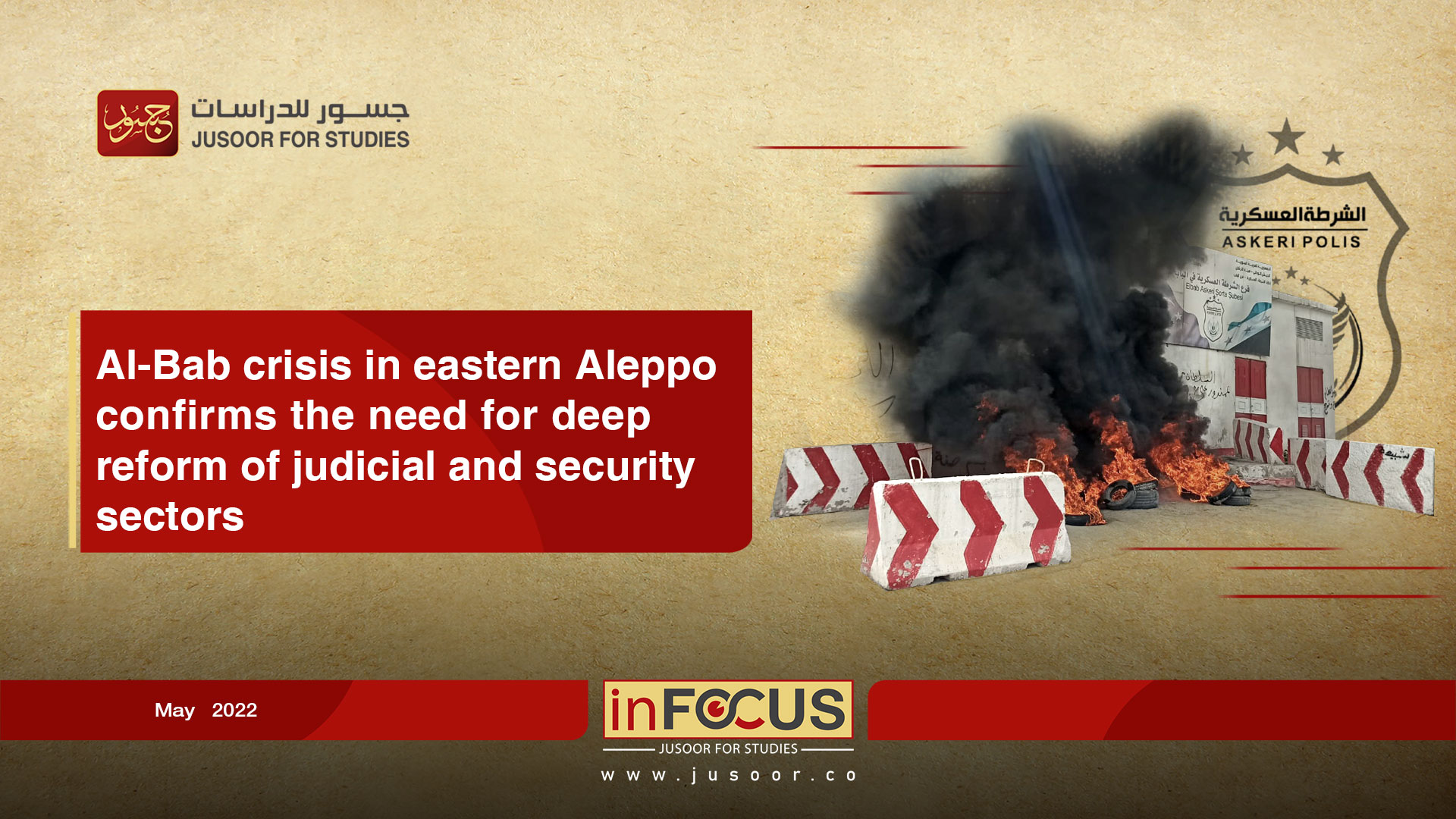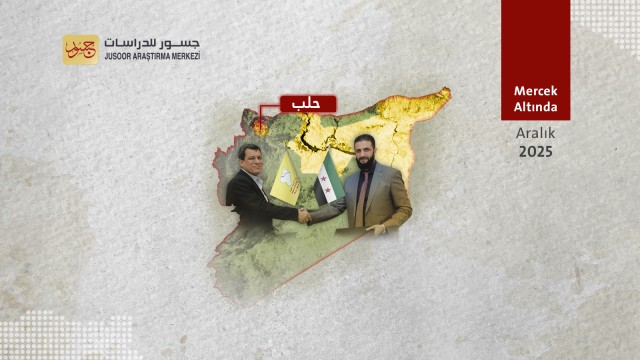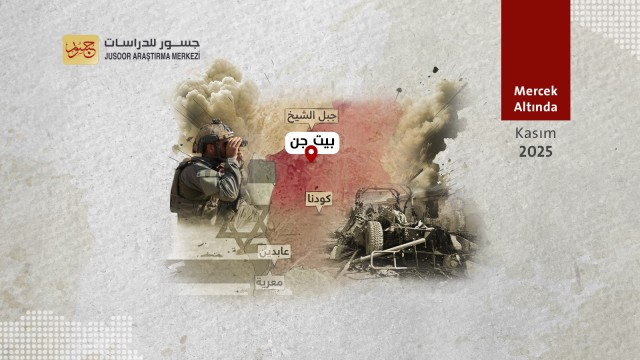Al-Bab crisis in eastern Aleppo confirms the need for deep reform of judicial and security sectors
Font Size
Al-Bab crisis in eastern Aleppo confirms the need for deep reform of judicial and security sectors
The Ministry of Defense of the Syrian Interim Government issued a decision on May 22, 2022, including the dismissal of the head of the Military Police branch in the region, Colonel Abdel Latif Khaled Al-Ahmad. The Ministry also appointed Major Obeida Al-Masry as a successor to Al-Ahmad.
The "Thaeroon for Liberation" movement also issued an order to refer the leader in its ranks, Muhammad Yahya Khudair, to the military court to complete the interrogation in the case of the release of a former soldier from the Syrian regime forces who had been held in the opposition factions’ prisons.
These decisions came after public pressure and an open sit-in in the city of al-Bab, east of Aleppo, that began on May 18, 2022, against the background of the fact that the Military Police branch, in cooperation with a leader in the “Thaeroon for Liberation,” released a former conscript in the regime forces named Muhammad al-Mustafa, who confessed during investigations that he had participated in committing war crimes during the storming of the governorates of Daraa and Homs in the period from 2014 to 2016.
Although both the Ministry of Defense and the movement of Thaeroon appeared to respond to popular demands, this incident emphasized the urgent need for deep reform in the judicial and security sectors in order to avoid disruptions in their work later, or similar crises to take place.
It can be said that the real reform process requires basic steps such as:
1. To adopt the legislative and legal sources that govern the work of the judicial and security institutions, provided that they are commensurate with the reality that has arisen in the areas outside the regime’s control; Because the adoption of the legislative sources will reflect positively on the application of the provisions.
2. To reform the appointment mechanism in the judiciary and police institutions, to ensure that they carry out their duties away from factional, regional and local considerations.
3. Activating the role of the Public Prosecution Office as the body responsible for initiating lawsuits in the name of society and empowered to monitor the implementation of criminal judgments.
4. To activate the role of both the Ministry of Defense and its General Staff and enabling them to exercise their authority to refer the perpetrators of violations from the factions’ members to the military judiciary, instead of letting the commander of each faction to perform this function.
5. Strengthening the role of the civilian judiciary as general jurisdiction and defining the scope of the military judiciary's powers; To prevent conflict of jurisdiction, and to avoid transferring the military judiciary to a body that provides protection for crimes perpetrators from the members of the military establishment.
The role of civil society oversight in Al-Bab and some areas of northern Aleppo on the work of the opposition’s official institutions is clearly noted. However, pushing for a real reform process requires the continuation of the role of civil society in exercising oversight and not be limited to simply responding to current demands. As such, the civil society's activities and demands need to be organized and to be turned into specific programs and projects.








